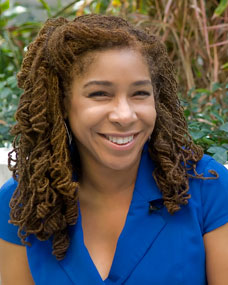USF Graduate Medical Education earns national grant for cultural diversity study
The USF College of Medicine was one of 10 academic medical centers awarded 2011-2012 Graduate Medical Education (GME) Challenge Grants from the Picker Institute and the Arnold P. Gold Foundation.
The grant is for $100,000 with the USF GME Office providing additional funds over the four-year grant.
The GME Challenge Grants support research and development of successful patient-centered care initiatives and best practices in medical education. Funded proposals include those that demonstrate specific interventions and innovations in graduate medical education programs regarding patient-centered healthcare and/or humanism in medicine.


The challenge grant went to Dr. Charles Paidas and Dr. Deanna Wathington.
Principal investigators for the winning grant from USF are Deanna Wathington, MD, MPH, and Charles Paidas, MD, MBA. Their project was titled “Enhancing Medical Resident Cultural and Linguistic Competency,” which evaluates the efficacy of training interventions that enhanced the cultural and linguistic competency of a diverse group of trainees and program directors across multiple specialties in USF’s large urban residency program.
“We’re really pleased about this incredible opportunity to impact our graduate medical education, our residents and the care they give now, as well as in the future,” said Dr. Wathington, associate dean for Academic and Student Affairs at the USF College of Public Health and associate professor in the Department of Family Medicine in the USF College of Medicine.
“This is an ideal time to explore the depth and breadth of knowledge our residents. We hope to positively impact their skill set and their ability to provide responsive and robust care to all patients. Our residents are more diverse than ever and, being from a major urban area, their patients represent an increasingly diverse population as well.”
The USF project has several goals. The first is the administration of a base-line survey that will assess current knowledge and cultural and linguistic competency of all USF residents. Others include the utilization of an e-learning module and a one-day workshop for about 50 residents among all the specialties. The final aim is to attempt to create an ongoing dialogue between patients, residents and faculty on the issue of culture and race in healthcare, said Dr. Wathington, who will work on the grant project with co-principal investigator Dr. Paidas, associate dean for USF’s GME program, professor in the Departments of Surgery and Pediatrics in the USF College of Medicine, and director of the Division of Pediatric Surgery.
Dr. Wathington emphasized how this project encompasses key principles, criteria and program requirements of the the Picker Institute, the Arnold Gold Foundation and the ACGME.
For the Picker Institute, the principles are: Respect for patients’ values, preferences and expressed needs while providing information, communication and education. For the Gold Foundation, the criteria are: Show respect for the patients’ perspective and world view, displaying effective and empathetic communication, demonstrating sensitivity in working with patients of diverse cultural and social backgrounds. And for the ACGME, the program requirements are: Demonstrate interpersonal and communication skills that result in the effective exchange of information and collaboration with patients, their families and health professionals, and professionalism.
Most importantly, ACGME states that residents are expected to demonstrate sensitivity to a diverse patient population, including but not limited to diversity in gender age, culture race, religion, disabilities and sexual orientation.
Among the other recipients of the grants this year were the Children’s National Medical Center, Dana Farber Cancer Institute, the University of Chicago, Mount Sinai Medical Center, and the University of California, San Francisco.
Visit cgp.pickerinstitute.org for more information about the challenge grants.
Story by Sarah A. Worth, USF Health Office of Communications

